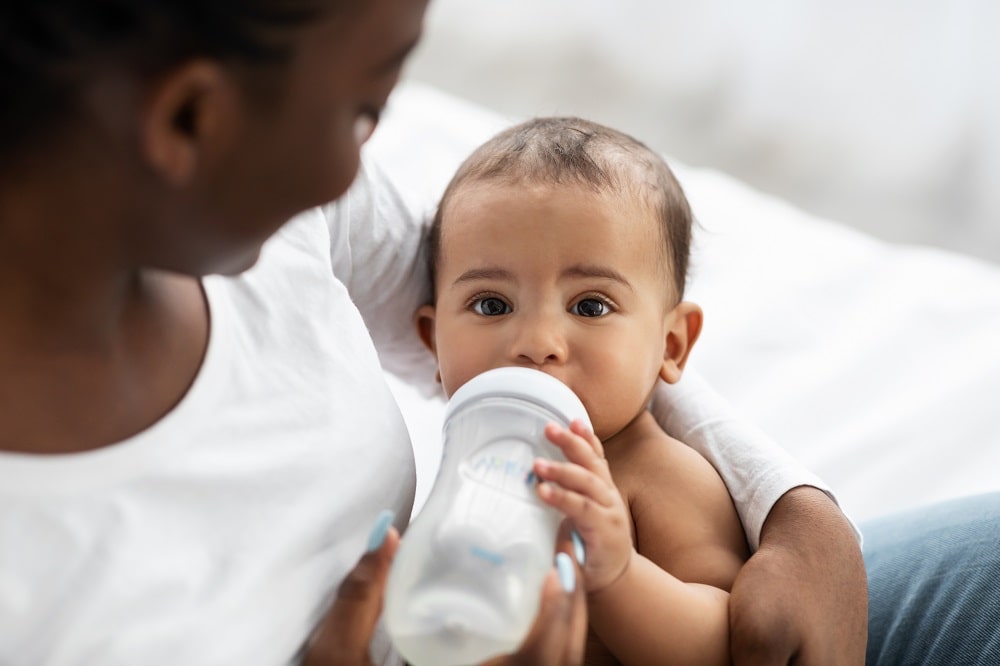“All children are born to grow, develop, live, love, and articulate their needs and feelings for their self-protection.” – Alice Miller- Psychologist and Philosopher.
Though every newborn grows at their own pace, the first year of your infant’s development will not be less than a whirlwind.
After post-pregnancy recovery, you will have to buckle up and stay alert about the physical growth of your little one. Perhaps, you must also get your camera ready to capture all the mesmerizing yet overwhelming “firsts” of your infant – from growing a tooth to crawling.
This brings us to our questions- What are the “firsts” you can expect during your newborn’s first year?
Are you curious to know? If yes, then keep on scrolling!
Infant Development: One To Three Months
In the first few weeks, the infant’s body and brain start to adapt to the outside world. In the beginning, they learn:
- How to smile,
- Raise their head,
- Track the object with eyes,
- Bring their hands to their mouths,
- Grip small items.
While watching your little one do all these things might be adorable, you must not forget about keeping health a priority. It is important that you visit the pediatrician to learn about possible health conditions such as congenital hypothyroidism, cystic fibrosis, or phenylketonuria (PKU). The doctor can also guide you about the dos and don’ts of better development.
Infant Development: Four To Six Months
During the next three months, they take their recently learned skills to a new level while discovering new features about their body. In simple terms, they learn to use their hands and start to babble. They are likely to:
- Roll over from front to back and vice versa
- Develop front tooth
- Start laughing
- Reach out for items such as toys, scarves, or your hair (watch out for the last one!)
- Learn head control
- Sit up with support.
Infant Development: Seven To Nine Months
This is the period when the running phase of parenthood begins. Once the babies discover that they can get something or somewhere by rolling over, they begin to explore more. This implies you must keep a keen eye on them 24*7 and baby-proof your house. During this stage, your little one may:
- Start to crawl.
- Sit without support.
- Speak “mom,” “dad,” “yes,” or “no.”
- Learn to stand up using support.
- Start clapping or playing games such as peek-a-boo.
Infant Development: Ten To Twelve Months
This stage will turn your infant into an active toddler- who is curious about everything and ready to explore. They may learn to:
- Move around the house using support or furniture.
- Start speaking “mama” and “dada” clearly and respond to their name.
- Point at the item they want.
- Begin “pretend play” but in a clumsy way.
Wrapping It All Up
Bear in mind that the information mentioned above is based on average age, that means your baby might achieve this milestone quite early or a little late, which is perfectly normal. To assist your little one in this journey, you must visit the pediatrician on a regular basis and get them screened.

